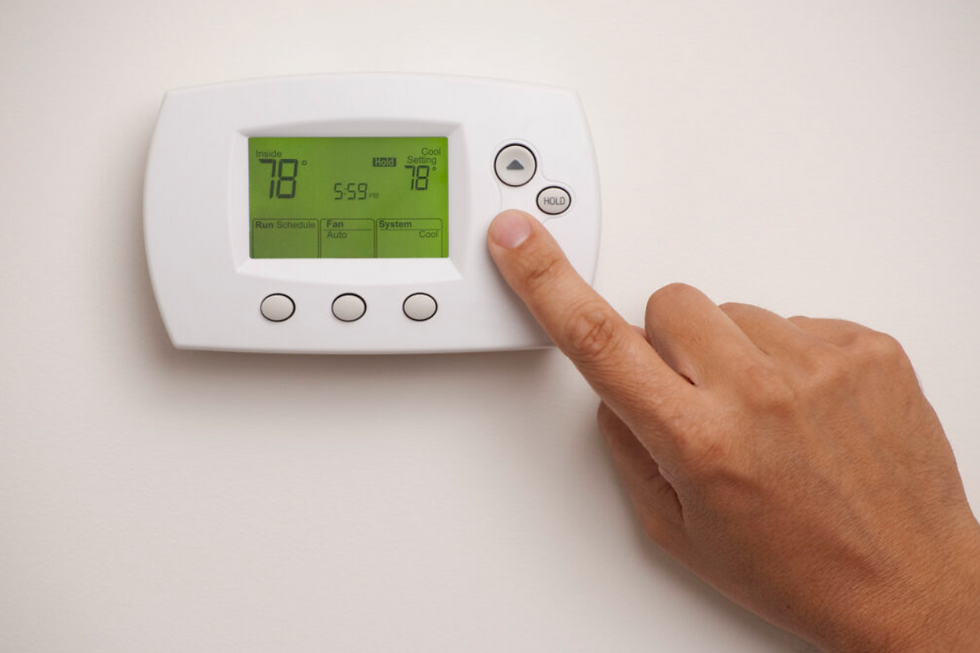DIY HVAC Maintenance: What Homeowners Can Do Between Professional Visits
- Legacy Media
- Aug 12, 2025
- 3 min read

As seasons shift in New Lenox, IL and nearby areas like Frankfort, Mokena, and Joliet, your home’s heating and cooling system is constantly working to keep you comfortable. But even the most reliable systems need regular upkeep to avoid unexpected breakdowns. While professional HVAC repair and maintenance are crucial, there are several things homeowners can do between scheduled service appointments to keep systems running efficiently and extend equipment lifespan.
By following these simple DIY HVAC maintenance steps, homeowners across New Lenox and surrounding suburbs can reduce energy costs, improve indoor air quality, and avoid larger problems down the road.

1. Change or Clean Air Filters Regularly
Dirty filters restrict airflow and make your HVAC system work harder. This results in higher energy bills and reduced system performance. Experts recommend changing your air filter every 1–3 months, depending on your system and indoor air conditions. For homes with pets or allergies, monthly replacement may be ideal. Whether you rely on air conditioning in Mokena or heating and AC in Frankfort, clean filters are a low-cost way to maintain system efficiency.
2. Keep Vents and Registers Clear
Blocked vents and registers can cause uneven airflow, overworking your unit and leading to early wear and tear. Take time every few weeks to vacuum dust from vent covers and ensure furniture or curtains aren’t obstructing airflow. Balanced airflow is key to optimal cooling and heating performance throughout your home.

3. Check the Thermostat Settings
Sometimes, what seems like an HVAC issue is just a thermostat problem. Make sure it’s set to the correct mode—heat in winter, cool in summer—and that the temperature is set appropriately. For homes in New Lenox using programmable or smart thermostats, check that schedules match your daily routines. A minor adjustment can reduce strain on your heating and air conditioning system while lowering your energy consumption.
4. Clear Outdoor Units
Outdoor AC condensers or heat pump units can easily become blocked by leaves, twigs, or debris. This can prevent efficient heat transfer and even lead to system damage. Homeowners in areas like Orland Park should check their outdoor units seasonally, trimming back vegetation and gently washing off dirt buildup. Ensure at least two feet of clearance around the unit for optimal airflow.
5. Monitor for Strange Noises or Smells
Unusual sounds or musty odors can signal deeper HVAC issues. Rattling, grinding, or banging noises often point to loose parts or motor problems, while a musty smell may indicate mold in the system. These symptoms should be reported to a technician immediately for inspection. Early intervention can prevent expensive HVAC repair and help maintain healthy indoor air.

6. Inspect for Water Leaks or Ice
Water pooling around your indoor unit or ice buildup on your evaporator coil is not normal. These issues may stem from a clogged condensate line or low refrigerant levels. While more technical issues require professional service, homeowners in Joliet or Frankfort can periodically inspect units for leaks and shut off power if something seems off.
7. Know When to Call a Pro
Even with consistent DIY care, nothing replaces expert eyes and tools. Seasonal tune-ups by trusted professionals like Zark Heating & Cooling Inc. can uncover hidden issues before they lead to breakdowns. Services air conditioner checks, refrigerant levels, electrical components, and airflow efficiency ensure your system is in peak shape heading into extreme temperatures.
A Trusted Partner in HVAC Maintenance
Zark Heating & Cooling Inc. proudly serves homeowners throughout New Lenox, IL and neighboring areas with full-service HVAC repair, installation, and maintenance. Whether you're upgrading to energy-efficient systems or keeping your current heating and AC units in top shape, our team delivers tailored solutions backed by decades of expertise.
Want to dive deeper into HVAC maintenance best practices? Explore this U.S. Department of Energy guide for more information on how to keep your heating and air conditioning system running efficiently.





.png)



Comments